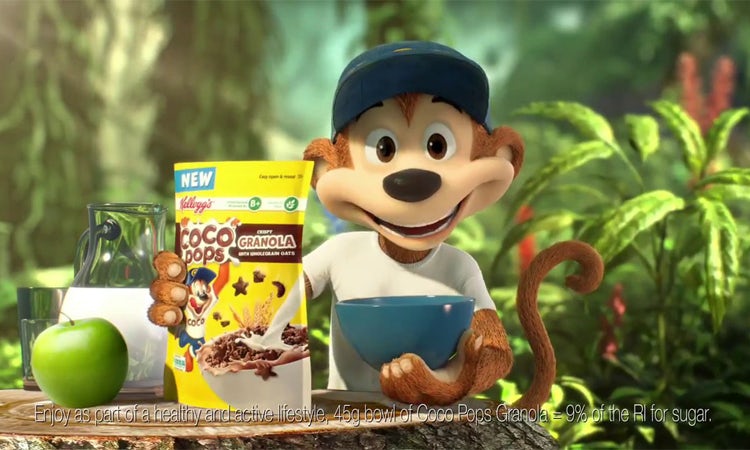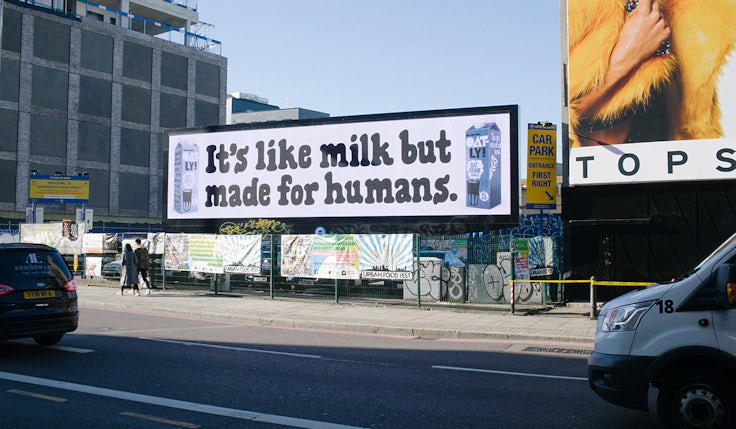KFC and Kellogg’s ads banned for promoting junk food to children
The UK ad watchdog has ruled that two ads for Coco Pops Granola and Mars Krushems must not appear again in their current form, but McDonald’s escaped a ban on two fronts.

KFC and Kellogg’s have both had ads banned for promoting junk food to children in the latest sign that the ad regulator is stamping down on those that break the rules.
The Advertising Standards Authority (ASA) made the ruling following complaints from the Obesity Health Alliance that the ads breached rules around advertising products that are high in fat, salt and sugar to children.
A poster ad for KFC’s Mars Krushems drink, which KFC says was “mistakenly placed” on a telephone box close to the entrance to a primary school, featured an image of the product next to a Mars Bar under the text “FINGERLICKIN’ COOL”.
Due to the ad being less than 100 metres from the school – which is what current guidelines state is the minimum proximity – it immediately breached the guidelines.
“This was a total mistake, and we’re really sorry for it,” a KFC spokesperson says. “It was the result of human error at one of our media agencies, which the ASA has accepted, and we made sure the advert was taken down as soon as we found out.
“We take care not to target our marketing at children – we never promote our kid’s meals or advertise on kid’s TV channels – so we’re disappointed that this happened, and we’ve been working with the agency to put processes in place to make sure it doesn’t happen again.”
READ MORE: Ad industry welcomes review into rules around junk food advertising on TV
Kellogg’s, however, says it is “disappointed” with the ASA’s decision to ban one of its TV ads for Coco Pops Granola, which aired during the children’s programme ‘Mr Bean’ earlier this year.
While Coco Pops Granola is a non-HFSS product, the ASA was concerned that the overall Coco Pops branding was significantly more prominent than the references to the granola cereal.
It said that the use of Coco the Monkey – who is “well-established as an equity brand character” – would likely cause strong associations with Coco Pops original cereal, which at the time the ad aired was still an HFSS product.
A Kellogg’s spokesperson says: “We are disappointed with this decision as we ensured throughout the advert that we were only promoting the Coco Pops Granola product, a cereal that can be advertised in children’s airtime.
“It’s particularly surprising when a ruling from the television regulator Ofcom published on Monday (6 August) confirmed that the same advert was not in breach of the advertising code.”
Kellogg’s says it has since reduced sugar in Coco Pops Original by 40%, meaning it now also meets the strict nutritional profiling for foods that can be advertised on children’s TV.
McDonald’s ads escape junk food ban
Meanwhile, McDonald’s was found not to have breached the HFSS ad rules on two counts.
The first complaints questioned whether a video-on-demand ad for McDonald’s Happy Meals that appeared between episodes of Peppa Pig on Ketchup TV should be banned. It showed two animated Happy Meal boxes and promoted its tie-up with Pokemon and the option to have pineapple as part of the meal deal, alongside a bottle of water and a portion of chicken nuggets.
However, the ASA ruled that none of the food and drink items on offer were junk food products, and therefore didn’t not feature HFSS products and so could be advertised during children’s programming.
It also found that the ad did not have the effect of promoting an HFSS product (the Happy Meal) because 80% of mains, 100% of sides and 64% of drink options available as part of the offering are non-HFSS. It therefore concluded the ad did not breach the code.
The second instance was for a promotion on the back of a bus ticket that featured a voucher for a Big Mac, McChicken Sandwich or Filet-O-Fish and medium fries for £1.99.
Under current rules, HFSS product ads must not be placed in media where more than 25% of the audience is under 16; but because the ads appeared on the back of bus tickets, the ASA decided they did not appear in media which was specifically directed at children.
Data from Compass Group showed that the proportion of children in the ad’s audience – people who used the 261 bus route – was highest during school term-time, at 16% of all passengers.
However, as many of those children used bus passes, it was found that just 12% of all passengers in the ad’s audience were children under 16, therefore giving McDonald’s the all clear.






